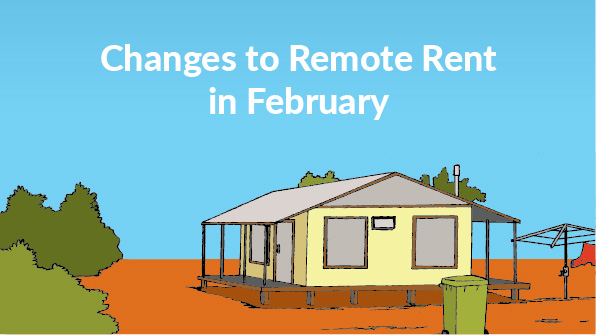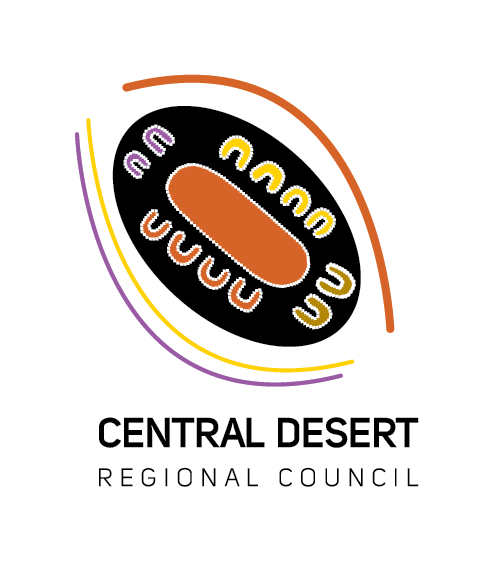Central Desert Regional Council is contracted by Northern Territory Government to deliver remote Tenancy Management Support Services (TMSS) in ten Central Desert communities.
Working with the Department Territory Families, Housing and Communities (TFHC), TM support services work with tenants to build their capacity to understand their tenancy and better manage their homes.
The service model includes the introduction of preventative (maintenance) inspections, as well as implementation of a new tenancy support ‘living skills’ program and targeted inspections based on the Nine Healthy Living Practices (HLPs).
Council’s TMSS covers:
- Yuendumu
- Yuelamu
- Willowra
- Wilora
- Laramba
- Nturiya
- Pmara Jutunta
- Atitjere
- Engawala
- Nyirripi
The program describes a new approach involving education and capacity building of tenants to understand their tenancy and better manage their homes. Council responsibilities include helping tenants to complete forms, education about payment of rent and what it is for, education about inspections and how the tenant can prepare for one, and education about maintaining a safe and healthy home including the timely reporting of maintenance issues.
The program focuses on a proactive, culturally appropriate and engaging experience for tenants. The key outcomes of this service are to improve:
- the quality of tenancies;
- health outcomes for households; and
- engagement in the tenancy management process.
The Living Strong Program, part of the tenancy management support service, is designed to increase the knowledge and skills of tenants to maintain a safe and healthy home. It focuses on helping people learn and develop “hands-on” living skills, and improving the health and safety of the home.
The program is focused on the nine Healthy Living Practices, which is an evidence based approach to supporting remote tenancies. The Nine Healthy Living Practices are:
- Washing people;
- Washing clothing and bedding;
- Removing wastewater safely;
- Improving nutrition, the ability to store, prepare and cool food;
- Reducing the negative impacts of overcrowding;
- Reducing the negative impacts of animals, insects and vermin;
- Reducing the health impacts of dust;
- Controlling the temperature of the living environment; and
- Reducing Hazards that cause trauma.
After completing the program the tenants should have greater confidence and control of their housing and an understanding that looking after their houses and yards is an important part of looking after their families’ health.
In Summary, the Living Strong Program is to provide support and information on topics including, but not limited to:
- their rights and responsibilities as a tenant;
- maintaining a safe and healthy home;
- managing finances to pay rent and other financial obligations;
- reporting maintenance;
- how to manage visitors; and
- responsible pet ownership.
The program is also designed to engage tenants in the process of integrating a preventative approach to repairs and maintenance work and health hardware, with a focus on the nine (9) Healthy Living Practices (HLPs).
If you would like to know more about Tenancy Management Support Services get in touch with the TMSS team on: This email address is being protected from spambots. You need JavaScript enabled to view it. or This email address is being protected from spambots. You need JavaScript enabled to view it. or phone 08 8958 9500.
Remote Rent System
The NT Government has changed the way it collects rent for remote tenants.

The new remote rent framework is a simplified way of paying rent for remote tenants.
It creates a system that is fair and easy to understand where tenants pay a flat rate of $70 per bedroom, per week, for their house.
Tenants living in remote communities, Alice Springs town camps and Tennant Creek community living areas do not need to pay for a bond.
If tenants are at risk of rental stress, where the rent is more than 25% of total assessable household income, a safety net can be applied.
The rental safety net has been developed to ensure that tenants do not experience rental stress.
In rolling out the new framework, historical rental arrears accrued up until 11 December 2021 have been waived.
The new framework supports a system that is fair, affordable, easy to administer and provides clarity on rent payable for tenants to avoid debt, and ensures that we have a fair public housing system in place for many years to come.
What has changed?
- Rent has become a flat rate of $70 per bedroom per week - up to a maximum of $280. This means if the house has more than 4 bedrooms, no more than $280 per week will be paid.
- There are no more rental rebates.
- There is no more requirement to pay a bond.
- The person/s on the tenancy agreement - ‘house boss’ ‘co-boss’ - is responsible for collecting the rent from everyone who lives at the house to make sure the rent is paid on time.
For more information please visit Remote rent framework






